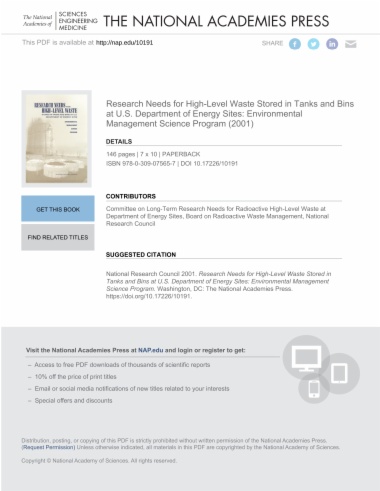

The United States Department of Energy (DOE) has approximately 400 million liters (100 million gallons) of liquid high-level waste (HLW) stored in underground tanks and approximately 4,000 cubic meters of solid HLW stored in bins. The current DOE estimate of the cost of converting these liquid and solid wastes into stable forms for shipment to a geological repository exceeds $50 billion to be spent over several decades (DOE, 2000). The Committee on Long-Term Research Needs for Radioactive High-Level Waste at Department of Energy Sites was appointed by the National Research Council (NRC) to advise the Environmental Management Science Program (EMSP) on a long-term research agenda addressing the above problems related to HLW stored in tanks and bins at DOE sites.